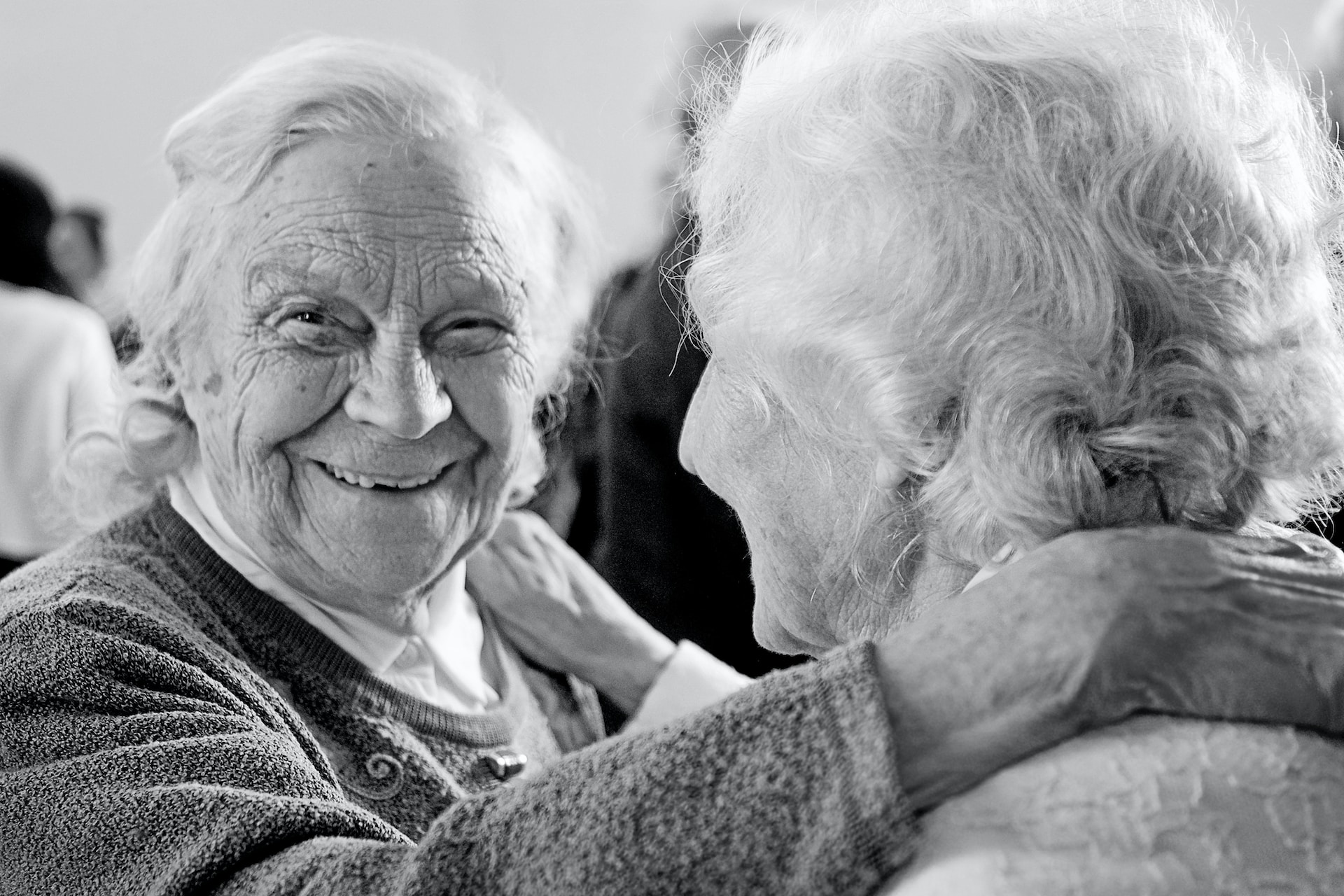By Ashley Barnes, M.S.
Why Meaningful Engagement Matters
A growing body of research suggests that the strongest predictor of happiness in old age is meaningful engagement – with society and each-other.
The McKinsey Health Institute (MHI) analyzed over 70 recent, peer-reviewed academic studies on the societal participation of older adults and “found six thematic health benefits: reduced mortality rates; reduced cognitive disability; less functional disability and frailty; decreased loneliness and depression; increased physical activity levels, and enhanced meaning and quality of life” (2023).
A McKinsey Health Institute (MHI) analysis that surveyed individuals 55 and older across 21 countries recently added to this research, indicating that having a sense of purpose in life and meaningful connections with others were among the most important factors that bolster the health of older adults around the world (2023).
Meaningful Engagement
The findings support the concept of societal participation being important to mental health and wellbeing. The McKinsey Health Institute (MHI) describes societal participation as “consistent involvement in deliberate activities that lead to meaningful engagement with one’s society and community.”
This can look like volunteering, working, engaging in learning experiences, and/or participating in community activities. Through these activities, people can gain personal fulfillment, a sense of belonging, and the opportunity to engage in lifelong learning.
Seniors can greatly benefit from strong, supportive relationships and social networks. Connecting with others through volunteering opportunities, communities related to mutual interests such as art or music, or even fostering relationships through religious communities could be some ways seniors may strengthen their social circle.
Developing a sense of community can help anyone feel supported and often incorporates shared interests and activities that give us a sense of purpose and motivation.
Let Us Support You and Your Loved One
Still, many older adults and elderly individuals struggle with mental health challenges.
Fortunately, geriatric psychiatrists have focused their clinical attention and training on the concerns of our aging population, knowledgeable and experienced in treating their mental health concerns. Geriatric psychiatrists can prescribe medication to help geriatric patients manage and better cope with their symptoms, meet with family members or other physicians to coordinate care, and some can even provide psychotherapy along with medication management.
Main focal points in geriatric psychiatry pertain to the “prevention, evaluation, diagnosis and treatment of mental and emotional disorders in the elderly and improvement of psychiatric care for healthy and ill elderly patients” (APA, 2021). Some of the most common psychiatric concerns that present in this population entail mood disorders such as depression and neurocognitive disorders such as dementia.
Here at the Mental Health Center skilled adult and geriatric psychiatrists are ready to support you and your loved ones:
Dr. Lee is a psychiatrist specializing in general adult and geriatric psychiatry. She has worked with patients from diverse backgrounds in various settings including academic institutions, city/county hospitals, and the Veterans Administration Hospital. She is board-certified by the American Board of Psychiatry and Neurology, and board-certified in Geriatric Psychiatry.
Dr. Lee was selected for the American Association for Geriatric Psychiatry Honors Scholars Program for Residents in 2017. Her work has been published in journals including Experimental Gerontology, Dialogues in Clinical Neuroscience, and the Journal of Clinical Psychopharmacology.
Dr. Lydia Ann is a psychiatrist specializing in general adult psychiatry and a current geriatric psychiatry fellow. She has extensive experience treating patients of various backgrounds in multiple settings, including outpatient, inpatient, partial hospitalization, crisis residential program, emergency department, and corrections.
Due to this broad experience, she emphasizes the importance of care coordination and integration of one’s entire support system to bring excellent, individualized care to each patient. Dr. Ann is completing further specialized training in geriatric psychiatry fellowship at UCLA.
Dr. Miriam Winthrop is a board-certified psychiatrist specializing in adult and geriatric psychiatry. She believes in taking a holistic approach to addressing mental health. In addition to her expertise in the use of medications, she has extensive training in multiple types of psychotherapy, including cognitive-behavioral and insight-oriented modalities. Dr. Winthrop has extensive experience working with a wide range of issues, including depression, anxiety, PTSD, OCD, dementia-related concerns, and end-of-life issues.
She received her medical degree from the Keck School of Medicine of the University of Southern California. She completed her residency in adult psychiatry at LAC+USC Medical Center. She completed her fellowship in geriatric psychiatry at the David Geffen School of Medicine at UCLA. She was selected as an Honors Scholar in the American Association for Geriatric Psychiatry and received the award for excellence in psychotherapy from the Austen Riggs foundation.
Online Resources
- Health in Aging – a service from the American Geriatrics Society gives information for older adults/family members regarding mental health concerns.
- Alzheimer’s Disease and Related Symptoms – a resource from the National Institute on Aging provides articles and advice for coping with cognitive impairment and Alzheimer’s.
- Cognitive Aging Efforts – created by the American Psychological Association, this site offers up-to-date webinars and informative publications regarding common geriatric concerns.
References
American Psychiatric Association. (2021). Geriatric Psychiatry. American Psychiatric Association. Retrieved December 17, 2021, from https://www.psychiatry.org/psychiatrists/practice/professional-interests/geriatric
McKinsey Health Institute (2023, May 22). Age is just a number: How older adults view healthy aging. Retrieved November 3, 2023, from https://www.mckinsey.com/mhi/focus-areas/healthy-aging

